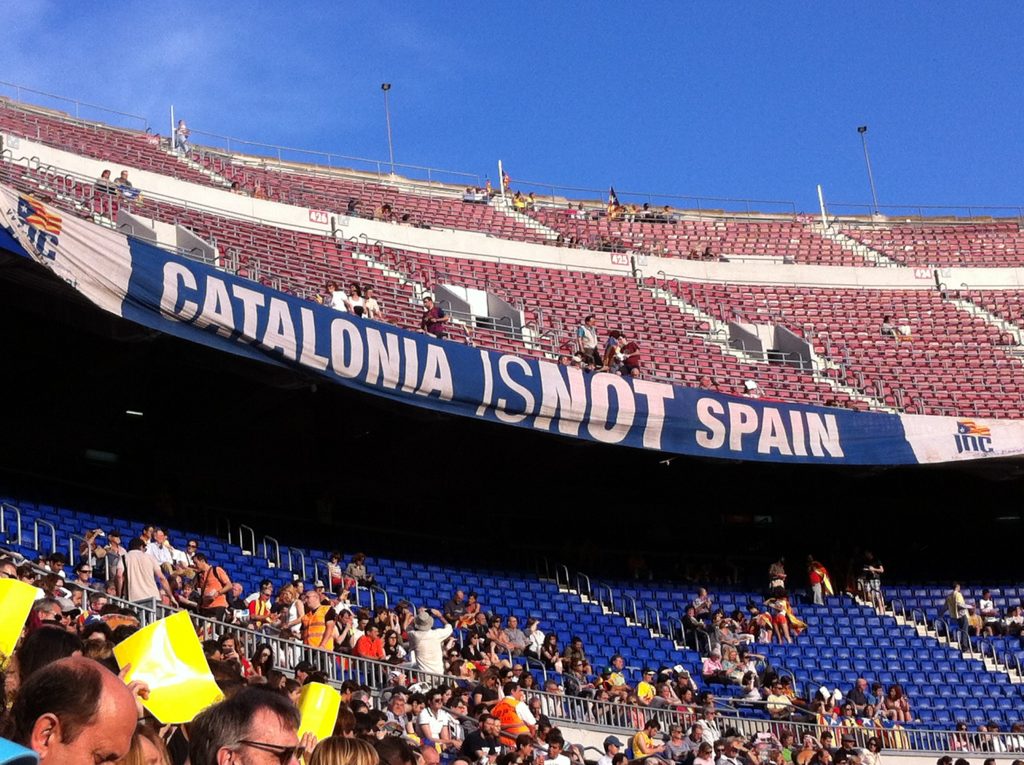The independence movement in Catalonia is not going to disappear, even if the EU is doing everything to ignore it.
Toni Strubell is a former MP in the Catalan Parliament, journalist, and author of What Catalans Want

This is going to be a vital week for the Catalans. Both those who seek statehood and freedom from Spain and those who do not. Crucial decisions that may tip the balance in favour of -or against- the fate of the famous Catalan independence Procès are to surface.
Since October 2017, the Catalan independence movement has been on the run. Despite the surprising pro-independence parties’ victory at the December 21 2017 elections -against all odds- permitting them to stay in power, the Spanish government determined to recover in the State courts what it had lost at the polls. Repression at all levels was Madrid’s only response in what may be seen as an uncurbed Deep State campaign to stop the independence movement. Not only were Human Rights callously cut back –with nine independence leaders cruelly sentenced to up to thirteen years prison for calling a Referendum– but thousands of indy followers were unjustly prosecuted, fined or beaten up in the ensuing demonstrations. And this continues today.
In opting for repression as the State’s sole response to the Catalan Procès –such an un-European way of going about things– Spanish politics has degraded into an interparty feud over which group plugs the toughest line against Catalonia. Catalanophobia is worryingly rife in Spanish media. The message is: no one is to be let off lightly for daring to question Spain’s sacred “unity”, a mantra that king Juan Carlos recently admitted to have promised to observe to Franco at the fascist leader’s deathbed.
Yet from the first moment it was obvious that placing Spain’s judicial machinery the sole task of punishing Catalans and beheading the independence movement, was not to be a cinch. No matter how fortunate Spanish governments (both conservative and socialist) had been buying the EU’s blind eye over Catalonia (with scandalous public honours bestowed upon Juncker, Tusk, and Tajani), sooner or later Spain’s bending of the law in the Catalan issue was bound to meet with some kind of auditing. And this might well be one of the weeks in which this will become apparent.
Indeed, the first of Spain’s challenges now is due to surface on Thursday with the Court of Justice of the European Union’s decision over ex-vice-President Junqueras’ immunity and his right to take up his seat as MEP. Basically the question is whether Spain has the right to veto him over his oath regarding the Spanish Constitution. Another question is how his thirteen-year sentence –judged inadmissible by dozens of international HR bodies such as Amnesty International or the very United Nations– might be interpreted.
Yet other exiled Catalan MEPs temporarily excluded from taking their elected seats have no sentence. This involves former president Puigdemont and ministers Toni Comín and Clara Ponsatí, the latter of whom will be eligible as MEP after Brexit farms out new seats. Many see the irruption in the European Parliament of three or four new Catalan indy MEPs as one of those unpredictable butterfly wingbeats that could help turn the tables for Catalonia. Indeed, the favourable report released by EU advocate Maciej Szpunar (last November the EU Advocate general Szpunar came to the conclusion that Spain had no legal right to block a Catalan candidate from taking his seat as a member of the European Parliament), could well be the second nail in the coffin of Spanish intransigence after so many countries’ refusals (Germany, Scotland, Switzerland, Belgium) to satisfy Spanish Euro-orders regarding the arrest and forced repatriation of the Catalan exiles.
But that is not all this week holds in store. Wednesday’s “clásico”, the FC Barcelona – Real Madrid match, promises to provide the Catalans with a new opportunity to show the growing support independence has in the country. Hundreds of thousands of Catalans are expected to show their peaceful solidarity with the Catalan political prisoners at the Barcelona stadium Nou Camp, and thereabouts, at the call of the mysterious Tsunami Democràtic, a group not so dissimilar to the CDRs (Committees for the Defense of the Republic) that the European Parliament has wisely refused to consider “terrorist”. It will be a new opportunity for the world to see that Catalans are back on the offensive in their age-old quest for freedom and the right to belong to a Europe they would very much like to change and make more democratic. But that’s another issue.


Be the first to comment